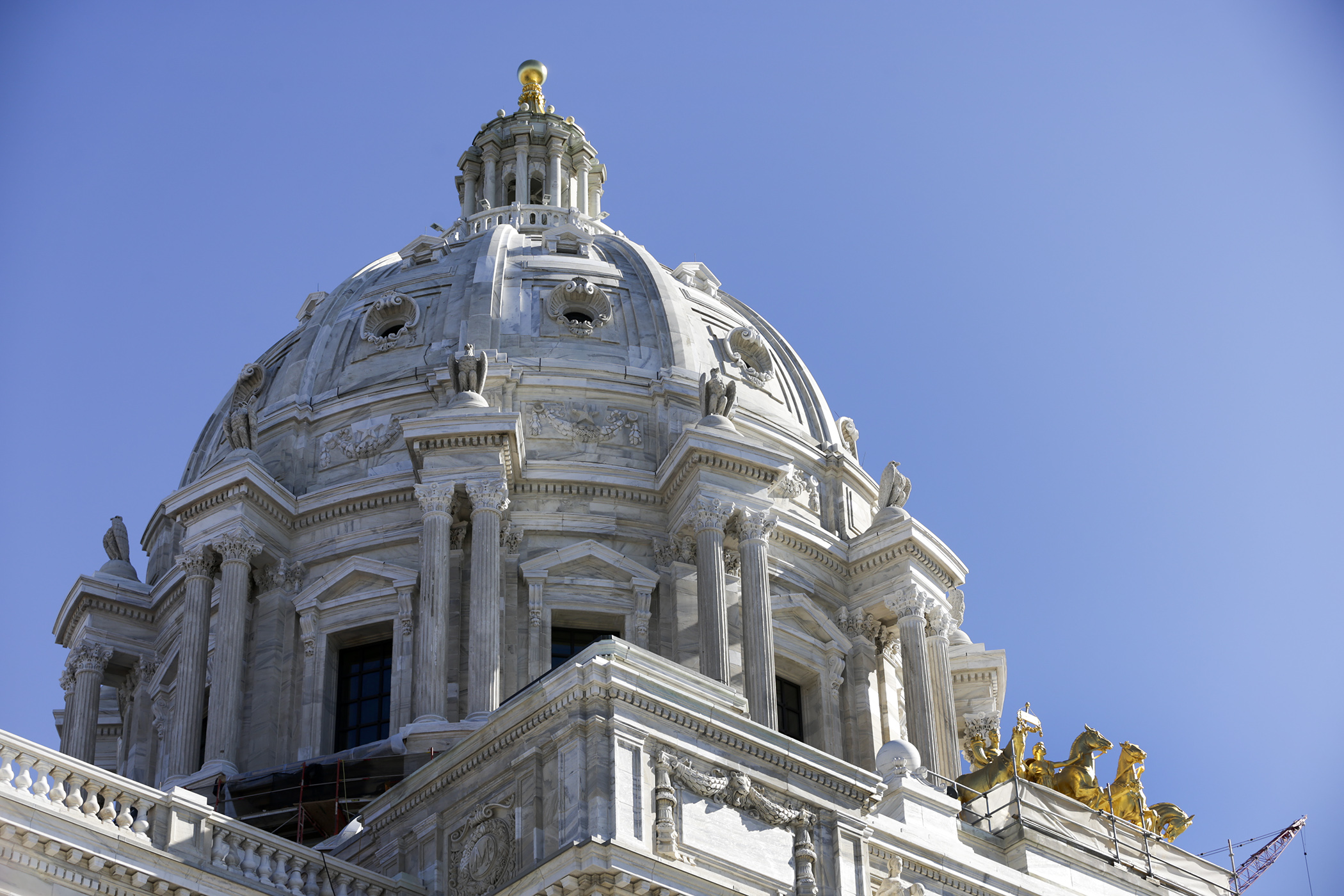MNLARS funding, registrar reimbursement aid move toward House Floor

A House panel on Tuesday advanced another bill that aims to help clean up the botched rollout of MNLARS, the state’s new license and vehicle registration system.
Less than a week after a long-awaited report by the Office of the Legislative Auditor cast blame for the failure widely amongst administration agencies responsible for MNLARS, the House Transportation Finance and Policy Division approved legislation that would provide $15.7 million in deficiency funding to state agencies to continue work on improving the troubled system.
HF861, sponsored by Rep. Rick Hansen (DFL-South St. Paul), would also appropriate $10 million in one-time General Fund dollars to reimburse deputy registrars, the roughly 170 local DMV offices across the state that took a financial hit as they dealt with the brunt of the MNLARS fiasco.
It is an effort, Hansen said, “to catch things up, both for MNLARS … and the cost to the deputy registrars.”
The bill is similar to HF635, a bill the division heard last week. HF861, as amended, now heads to the House Ways and Means Committee. A companion, SF1052 sponsored by Sen. Scott Newman (R-Hutchinson), awaits action by the Senate Transportation Finance and Policy Committee.
Despite improvements since its bungled July 2017 debut, deputy registrars and customers are still encountering delays, state officials say. Cassandra O’Hern, the deputy commissioner of public safety, said things like driver’s license renewals and vehicle titles are still taking longer than they should. Other customers are waiting months for an appointment to take a driving exam, and constituents at times struggle to reach anyone for help over the phone or via email.
O’Hern said Hansen’s bill represents a way forward.
“The way forward costs money and that’s why we’re here,” she said.
A ‘significant’ step — but ‘a bit late?’
Rep. Frank Hornstein (DFL-Mpls), the division chair, called Hansen’s bill a “significant initial step” in righting the wrongs of MNLARS’ roll-out.
With it, he said, “we send a message to the state that we take this matter seriously.”
Republican lawmakers have complained that assistance for registrars hasn’t come quickly enough. Former Gov. Mark Dayton vetoed $9 million in aid earmarked for the local DMV offices last May, saying he supported reimbursing deputy registrars but not without a commitment to continue funding fixes to MNLARS.
“It is a bit late in the game,” said Rep. Paul Torkelson (R-Hanska), who chaired the transportation finance committee during the preceding biennium when the House was under Republican control. “It should have occurred sooner and it’s a shame that it didn’t.”
Where the funds would go
The proposed $15.7 million appropriation this year would fund continued development work on MNLARS, as well as additional customer service in the Department of Public Safety.
The funds would be split accordingly:
- $6.77 million for ongoing MNLARS motor vehicle software;
- $5.5 million for development work on the driver’s license computer system; and,
- $3.47 million for additional DVS customer service staffing.
Deputy registrar aid formula
Under the legislation, reimbursement to deputy registrars would be calculated using the following formula:
- 10 percent of available funds allocated equally among all deputy registrars;
- 45 percent of funds allocated proportionally based on the number of transactions completed between Aug. 1, 2017 and Dec. 31, 2018 where the deputy registrar retains a filing fee compared to the total number of transactions where a filing fee is retained by all deputy registrars during that period; and
- 45 percent of funds allocated proportionally based on the number of transactions completed between July 1, 2014 and June 30, 2017 where the deputy registrar retains a filing fee compared to the total number of transactions where a filing fee is retained by all deputy registrars during that period.
Deputy registrars would have to submit documentation to Minnesota Management and Budget showing evidence of increased costs and lost revenue due to MNLARS. Businesses that receive a grant under the bill would also be required to remain operating as a deputy registrar for at least one year following the receipt of the aid, or be forced to pay back an amount equal to the grant.
Related Articles
Search Session Daily
Advanced Search OptionsPriority Dailies
Ways and Means Committee OKs proposed $512 million supplemental budget on party-line vote
By Mike Cook Meeting more needs or fiscal irresponsibility is one way to sum up the differences among the two parties on a supplemental spending package a year after a $72 billion state budg...
Meeting more needs or fiscal irresponsibility is one way to sum up the differences among the two parties on a supplemental spending package a year after a $72 billion state budg...
Minnesota’s projected budget surplus balloons to $3.7 billion, but fiscal pressure still looms
By Rob Hubbard Just as Minnesota has experienced a warmer winter than usual, so has the state’s budget outlook warmed over the past few months.
On Thursday, Minnesota Management and Budget...
Just as Minnesota has experienced a warmer winter than usual, so has the state’s budget outlook warmed over the past few months.
On Thursday, Minnesota Management and Budget...